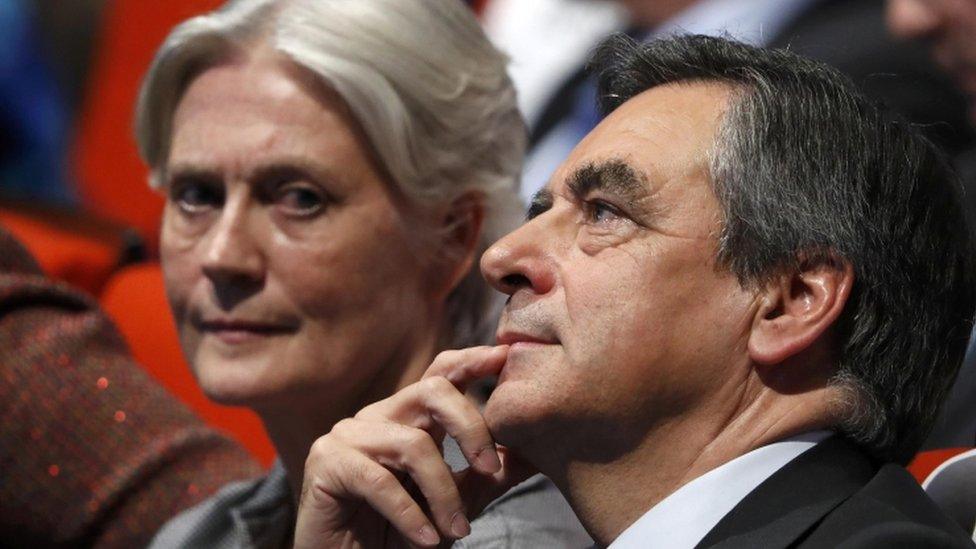French presidency: Fired-up liberal Macron in push for top job
- Published
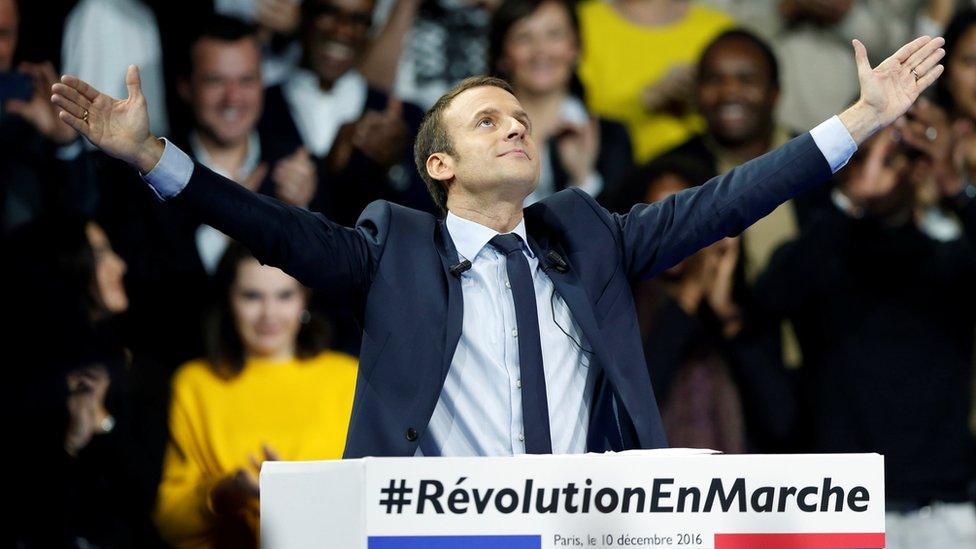
Mr Macron ends his rallies with his arms outstretched and a cry of "Long live France!"
The battle is on for the left-wing voters of France. But whoever wins the run-off on Sunday to be Socialist candidate in this spring's presidential election, many believe it will mark only the start of that fight for votes.
Emmanuel Macron is not in the running in Sunday's primary and yet his name almost always crops up. Although he served in the Socialist government as economy minister, the 39-year-old now heads his own newly-formed political movement, En Marche (On the move), which he describes as neither left nor right.
Mr Macron is starting to worry his far more experienced rivals. Polls suggest he could come in third if the election were held today. And there are many in the Socialist party who are flocking to his side.
In a few short months, 150,000 members have signed up to his liberal, pro-Europe agenda - twice as many members as the governing Socialist Party has.
In a field of five key candidates, he is the only one who is "doubly-liberal" - on both economic and social issues. And he is the newest arrival to politics by far.
'Long live France'
His voice cracking, at the end of almost two hours of exhortations, he builds to the climax of the speech; arms outstretched before a sea of shining faces and waving flags; eyes raised to heaven; his final words almost a scream: "Vive La France!"
He's called Emmanuel, and he is - for many of the beaming supporters at this rally - the new political Messiah.
For others, he's a glossy young ex-banker, with an ambition the size of France. Either way, Emmanuel Macron is getting rock-star attention - and audiences to match.
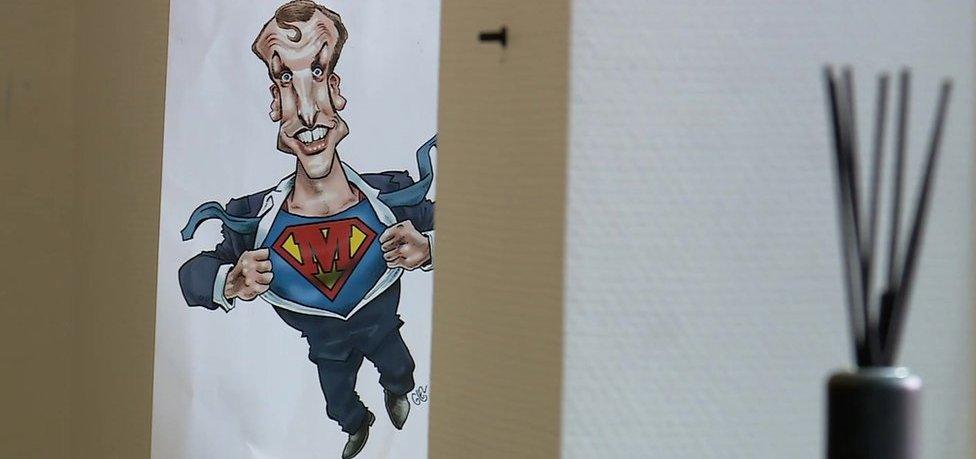
His young campaign team strongly believe he can turn France's economy around
His En Marche movement has cast itself as a fresh approach to politics, with strong ties to the grassroots, and a startlingly young staff.
Their new campaign headquarters feels more like Silicon Valley than Paris. The average age is well under 30, there are bunk beds for resting and, on one wall, a hand-drawn cartoon of Mr Macron as Superman.
"I put that up," laughs Raphael Coulhon, one of his finance team, who's dressed in a red t-shirt and jeans. "I probably shouldn't have. It's not part of a personality cult, but that said, it's true that we all believe in him, his ideas. We're all behind him."
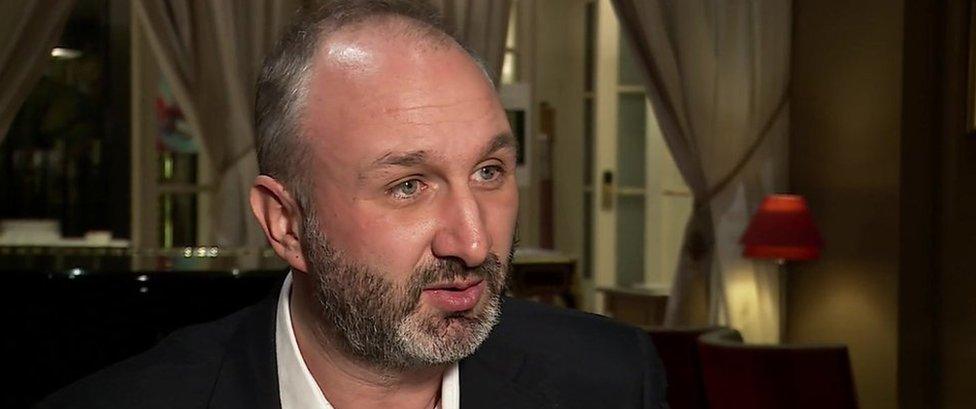
Antoine Marguet, a friend of the ex-minister, says he was always destined for great things
Emmanuel Macron was once a small town boy from Amiens, two hours' drive north of Paris. It's where he met his future wife; at the local Jesuit school. The only twist in that timeless, romantic story is that she was his teacher, not a fellow pupil.
But then, says his friend Antoine Marguet, he was always precocious.
"He was different, cultivated; he was practically the equal of the teacher," he remembered. "He had an Olympic intelligence: further, higher, faster. Everyone knew he'd do something exceptional."
Read more here on France Election 2017:
Emmanuel Macron is presenting himself as an outsider, an alternative to the political establishment, but say his critics, that isn't the whole story.
After leaving La Providence school in Amiens, he went to the elite academic Henri IV school in Paris, and then on to the unofficial clearing house for French leaders, the Ecole National d'Administration.
After working for the Rothschild banking family, he was brought into government by Francois Hollande as an economic adviser, and then given the job of economy minister.
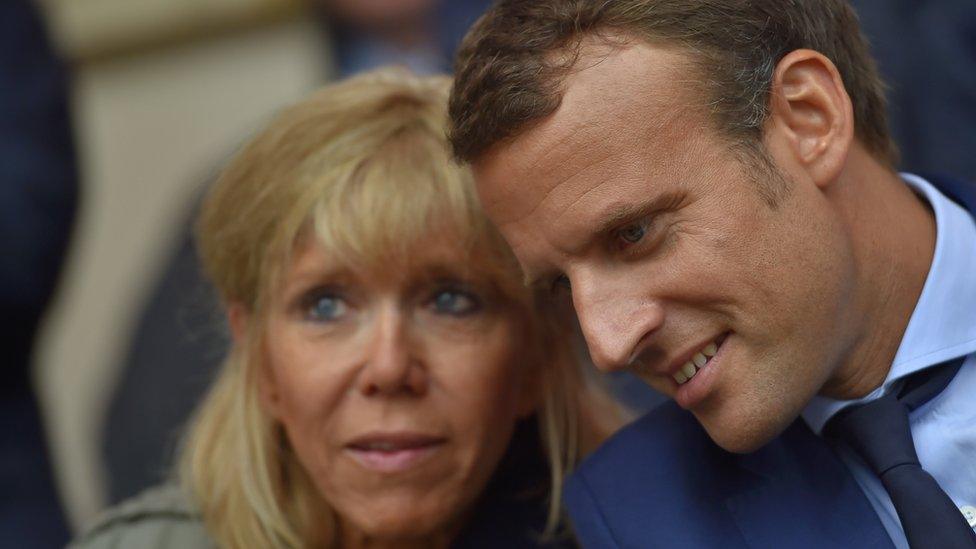
Brigitte Trogneux was Mr Macron's teacher in his final year at school
Two years later, he quit to launch his own presidential bid. It left a bruise. Some in the Socialist Party called him a traitor, and accused him of stabbing his president, and former mentor, in the back.
Frederic Fauvet, a Socialist Party councillor in Amiens, has labelled Mr Macron an arch-manipulator, more spin than substance. "We're three weeks away from the presidential campaign," he told me, "and we still don't know what he thinks about the important issues - Europe, education, secularism. It's all up-in-the-air."
Still, he's not doing badly for a man fighting his first election campaign.
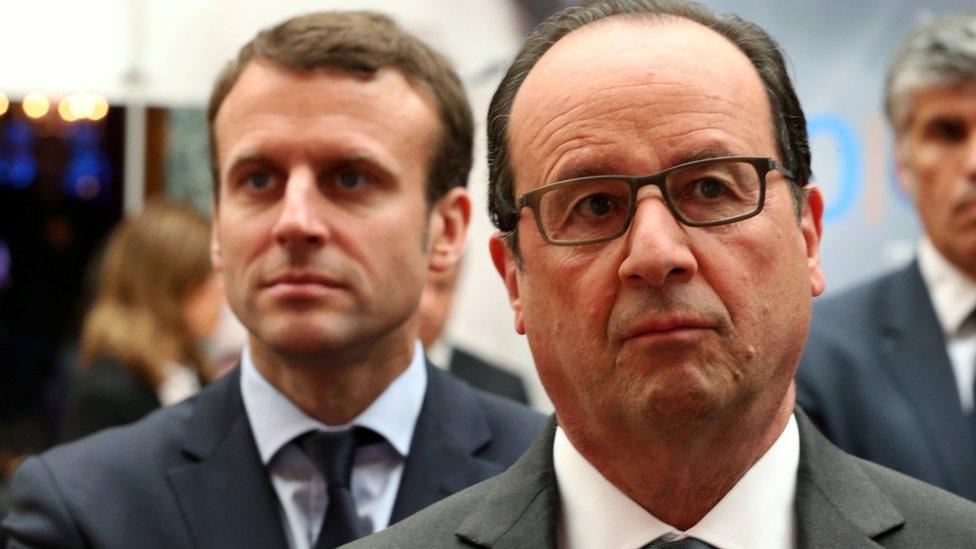
Mr Macron was a protege of Francois Hollande but left his team as his political ambitions emerged
One of Francois Hollande's advisers even suggested recently that the president himself might back his former protege rather than the Socialists' own candidate - a remark quickly denied by the Elysee.
And at a meeting of supporters in Paris this week, it was less Mr Macron's policies that seemed to sway voters than his personality and style. The fact that he had never run for office before was, if anything, an asset.
"He's young, he's not part of the political establishment and he's the only one who speaks about Europe," said Victor, 18.
"The average age of politicians in France is 45 to 50," said Sommy who's 25. "He's only 40. We have expectations of him: we expect him to understand our problems, and what we want France to become tomorrow."
French elections, they say, are always won in the centre - just not by a man from the centre. But with the political landscape here shifting in the face of growing disappointment, all that could change.
- Published11 May 2021
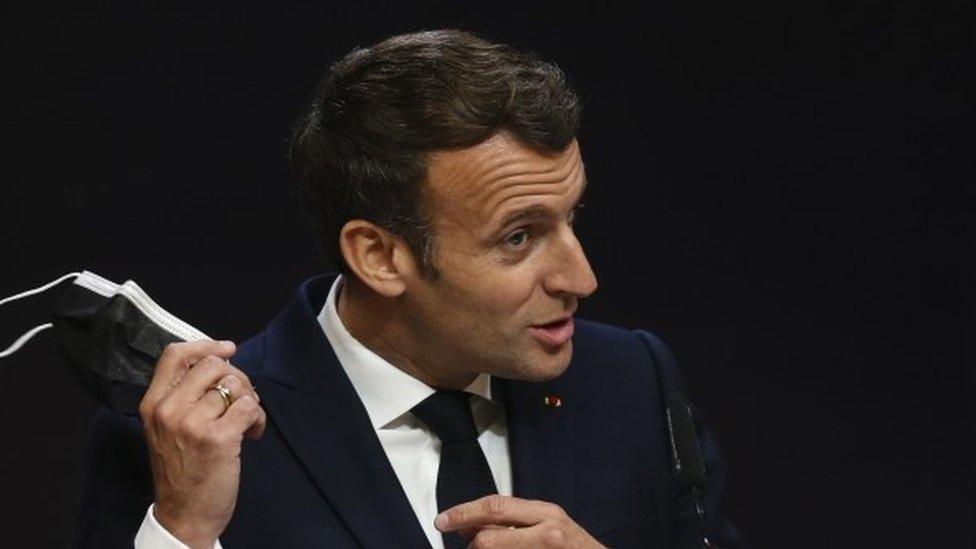
- Published25 January 2017
